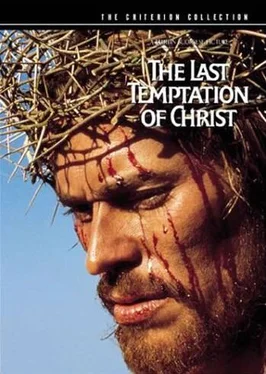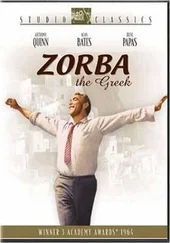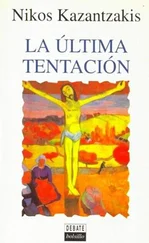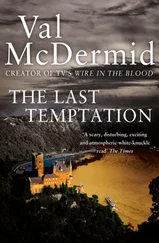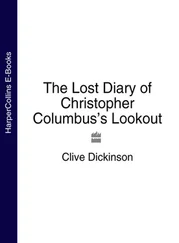Nikos Kazantzakis - The Last Temptation of Christ
Здесь есть возможность читать онлайн «Nikos Kazantzakis - The Last Temptation of Christ» весь текст электронной книги совершенно бесплатно (целиком полную версию без сокращений). В некоторых случаях можно слушать аудио, скачать через торрент в формате fb2 и присутствует краткое содержание. Жанр: Современная проза, на английском языке. Описание произведения, (предисловие) а так же отзывы посетителей доступны на портале библиотеки ЛибКат.
- Название:The Last Temptation of Christ
- Автор:
- Жанр:
- Год:неизвестен
- ISBN:нет данных
- Рейтинг книги:5 / 5. Голосов: 1
-
Избранное:Добавить в избранное
- Отзывы:
-
Ваша оценка:
- 100
- 1
- 2
- 3
- 4
- 5
The Last Temptation of Christ: краткое содержание, описание и аннотация
Предлагаем к чтению аннотацию, описание, краткое содержание или предисловие (зависит от того, что написал сам автор книги «The Last Temptation of Christ»). Если вы не нашли необходимую информацию о книге — напишите в комментариях, мы постараемся отыскать её.
The Last Temptation of Christ — читать онлайн бесплатно полную книгу (весь текст) целиком
Ниже представлен текст книги, разбитый по страницам. Система сохранения места последней прочитанной страницы, позволяет с удобством читать онлайн бесплатно книгу «The Last Temptation of Christ», без необходимости каждый раз заново искать на чём Вы остановились. Поставьте закладку, и сможете в любой момент перейти на страницу, на которой закончили чтение.
Интервал:
Закладка:
She fell onto her mattress and thrust her face into the pillow, biting the sheets all night long to hold back her cries and tears. She was afraid that if the man who was sleeping next to the fire heard her, he would take fright and leave. All night long she listened to him breathe tranquilly, restfully, like an infant nursing at the breast; and she,-lamenting softly within herself with tender, protracted sighs, lay awake and lulled him to sleep like a mother.
The next day at dawn she looked out between half-closed eyelashes and saw him get up, secure the leather strap tightly about his waist, and open the door. There he halted. He wanted to leave, but at the same time he did not want to leave. Turning, he looked at the bed and took a hesitating step toward it. He leaned over-it still was not very bright inside the room-he leaned over as though he wanted to find the woman and touch her. His left hand was thrust beneath the strap; with his right he covered his chin and mouth.
The woman lay on her back, motionless, her hair veiling her naked breasts. She watched him through her eyelashes, and her whole body trembled.
His lips moved: “Mary…”
But as soon as he heard his own voice, he took fright. He reached the threshold with one bound, strode hurriedly across the courtyard and unbolted the door.
And then-jolting up from her mattress and throwing off the sheets-then Mary Magdalene began to weep.
Chapter Eight
THE MONASTERY lay perched in the desert beyond the lake of Gennesaret, built of ash-red stones and wedged in and hidden between huge ash-red rocks. Midnight… Out of the sky the waters fell, not in drops, but in floods. The hyenas, wolves and jackals howled, as did a pair of lions farther away-infuriated by the repeated thunderclaps. Plunged in impenetrable darkness, the monastery was frequently striped by the lightning flashes: the God of Sinai seemed to be flogging it. The monks were fallen face downward in their cells, beseeching Adonai not to drown the earth once more. Hadn’t he given his word to the patriarch Noah? Hadn’t he stretched a rainbow from earth to heaven as a sign of friendship?
The only light was in the Abbot’s cell. Joachim, the Abbot, sat beneath the seven-branched candelabrum in his elevated stall of cypress wood and listened-skinny, short of breath, his white beard like a river, his arms crossed, eyes closed-listened to John, the young novice, who stood at the lectern and read to him from the prophet Daniel.
“’A night vision fell upon me. I saw the four winds of heaven bound over the Great Sea. And four large beasts came up out of the sea and the one did not resemble the other. The first was like a lion and had the wings of an eagle. I beheld it until its wings were uprooted and it was made to stand upright on its feet like a man; and a man’s heart was wedged into its breast. And behold, there emerged a second beast and it resembled a bear; and someone said to it, Arise, devour much flesh. I looked and lo, a third beast. It resembled a leopard and had four wings on its back, like a bird. This beast had four heads, and dominion was given to it…’ ”
The novice felt uneasy and stopped. He no longer heard the Abbot sigh or drive his nails with agitation into the stall; no longer even heard him breathe. Could he have died? For days and days now he had refused to put food into his mouth. He was angry with God and wanted to die. He wanted to die-that he made absolutely clear to the brothers-so that his soul might be unburdened of the body, might be relieved of this weight and enabled to ascend to heaven in order to find God. He had a complaint to settle with him: it was necessary for him to see him and talk to him. But the body was lead; it prevented his ascent. He decided, therefore, to send it about its business, to abandon it in the grave so that the true Joachim could ascend to heaven and tell God his grievance. This was his duty. Wasn’t he one of the Fathers of Israel? The people had mouths, but no voice. They could not stand in front of God and relate their suffering. But Joachim could; he had no choice!
The novice turned and looked. Beneath the seven flames the Abbot’s head, pitted like old, worm-eaten wood, roughened by the sun and fasting: how it resembled the primordial rain-washed skulls of beasts which caravans sometimes encountered in the desert! What visions that head had seen, how many times heaven had opened up before it, how many times the bowels of hell! His mind was a Jacob’s ladder on which all of Israel ’s anxieties and hopes climbed up and down.
Opening his eyes, the Abbot saw the novice standing before him, deathly pale. In the light of the menorah the blond fuzz on his cheeks glowed in all its virginity, and his eyes, swept away far into the distance, were full of affliction.
The Abbot’s severe expression sweetened. He loved this well-formed youth whom he had snatched from old Zebedee, his father, and brought here to be delivered up to God. He liked his submissiveness and ferocity, the silent lips and insatiable eyes, his sweetness and quick intelligence. One day, he reflected, this boy will speak with God, will do what I could not do; and the two wounds which I have on my shoulders, he will transform into wings. I did not rise to heaven during my lifetime, but he will during his.
The boy had come to the monastery once with his parents. It was to celebrate the Passover. The Abbot, a distant relation of old Zebedee’s, received them merrily and sat them at his own table. John was about sixteen years old at the time. While he ate, bent over his food, he felt the Abbot’s eye fall upon his scalp, push aside the bones, pass through the suture lines of his skull, into the brain. Terrified, he looked up, and the two glances joined in mid-air over the paschal table. From that day on, neither fishing boats nor the lake of Gennesaret had been large enough for the boy. He sighed and withered away until one morning old Zebedee grew weary and shouted, “Your mind isn’t on the fishing; it’s on God. Well, go on, go to the monastery. I had two sons. God willed that I divide them with him, so let’s divide them and be done with it-and let him have his way!”
The Abbot gazed at the boy who stood before him. He had intended to scold him, but as he looked at him, his expression sweetened. “Why did you stop, my child?” he asked. “You abandoned the vision in the middle. One mustn’t do that. He’s a prophet, and prophets must be revered.”
The boy turned fiery red, rolled the leathern scroll out on the lectern once more, and began again, chanting on one invariable note, to read: “ ‘After this I saw in my night visions a fourth beast, dreadful and sinister and terribly strong; and it had great iron teeth. It devoured and broke in pieces, and trampled the remainder with its feet. It did not resemble any of the other beasts; and it had ten horns-’ ”
“Stop!” shouted the Abbot. “That’s enough!”
The cry frightened the boy, and the sacred text rolled down onto the flagstones. He picked it up, placed his lips to it and kissed it; then went and stood in the corner, his eyes riveted on his superior. The Abbot, his fingernails now clawed into the stall, was shouting. “Daniel, all your prophecies have been fulfilled. The four beasts have passed over us. The lion with the wings of the eagle came and tore us open, the bear who feeds on Hebrew flesh came and ate us, the four-headed leopard came and bit us, east, west, north and south. The shameful beast with the iron teeth and the ten horns sits now above us: he has not come yet, has not fled. All the ignominy and fear you prophesied you would send us, Lord, you have sent-and we thank you! But you prophesied good things too. Why haven’t you sent those? Why are you so tight-fisted where they are concerned? You’ve given us a liberal supply of calamities; now give us generously of your benefits! Where is the son of man you promised us?… John, read!”
Читать дальшеИнтервал:
Закладка:
Похожие книги на «The Last Temptation of Christ»
Представляем Вашему вниманию похожие книги на «The Last Temptation of Christ» списком для выбора. Мы отобрали схожую по названию и смыслу литературу в надежде предоставить читателям больше вариантов отыскать новые, интересные, ещё непрочитанные произведения.
Обсуждение, отзывы о книге «The Last Temptation of Christ» и просто собственные мнения читателей. Оставьте ваши комментарии, напишите, что Вы думаете о произведении, его смысле или главных героях. Укажите что конкретно понравилось, а что нет, и почему Вы так считаете.
